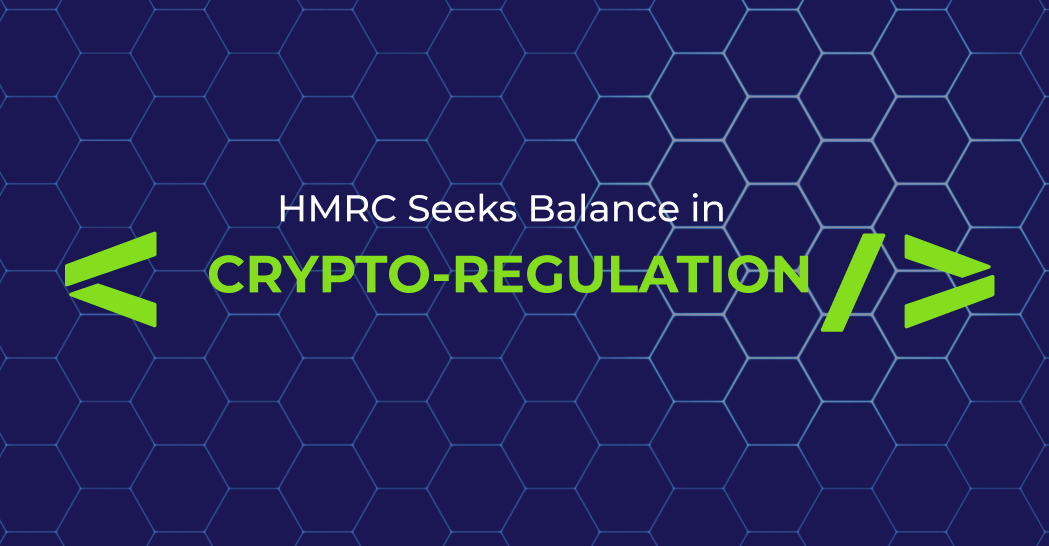HMRC Explores New Powers to Seize Cryptocurrency from Tax Noncompliant Businesses
Written by
Krista Alvarez
Published on
May 08, 2023
Time reading
5 minutes

His Majesty’s Revenue and Customs (HMRC) is contemplating the introduction of new rules that would enable it to confiscate cryptocurrency from businesses that fail to pay their taxes. The government is currently reviewing proposals that would grant the tax agency powers to access online wallets, as part of its plans to modernize how tax is collected in the digital age.
Existing Powers and Proposed Expansion
HMRC already has the ability to seize funds from bank accounts when individuals fail to pay tax under “direct recovery of debts” powers. The agency is now considering extending this power to cover online payment accounts such as PayPal. This move is prompted by the ever-evolving landscape of the financial sector, which has seen a significant shift towards digital transactions and e-commerce in recent years.
An HMRC consultation document raises the prospect that businesses’ cryptocurrency wallets could be targeted if virtual currencies become a common way of making payments online. This potential move is viewed as the latest crackdown on the cryptocurrency sector, which has been accused of allowing money laundering and criminal activity. Cryptocurrencies such as Bitcoin have been touted as ways to give owners control of their finances outside of government control.
Centralized Online Exchanges and HMRC
While only the owner can access cryptocurrency wallets operated by individuals, those hosted on centralized online exchanges like Coinbase, Binance, and Kraken could be subject to the proposed rules. Law enforcement agencies currently have the ability to seize cryptocurrencies from these exchanges when they detect criminal activity.
The HMRC consultation document suggests that if further regulation is brought in around digital currencies, cryptocurrency wallets may become a more popular method of paying for goods and services. However, the document also notes that it is unclear how easy this would be due to the fluctuating value of cryptocurrency.

Government’s Stance on the Proposal
The government has indicated its intention to proceed with granting HMRC powers to seize funds from digital wallets. However, it remains uncertain if this will extend to cryptocurrencies. The proposals aim to ensure HMRC’s debt collection keeps pace with evolving business practices. E-commerce has led to new business practices with fewer physical and owned assets held in the UK, making it more challenging for HMRC to collect unpaid taxes using existing powers.
Safeguards and Reassurances for Taxpayers
HMRC has emphasized that all its powers are balanced by safeguards, which should reassure taxpayers that powers are exercised proportionately and consistently. The responses to the consultation will support the government in undertaking additional analysis and engagement on the proposals, ensuring that the final decision takes into account the concerns and suggestions of various stakeholders.
Cryptocurrency and Law Enforcement
Police have already seized hundreds of millions of pounds in cryptocurrency linked to criminal operations, often auctioning it off. Law enforcement’s growing expertise in handling digital assets and their increasing involvement in cryptocurrency-related cases underline the need for clear regulations and guidelines.
Inclusion of Cryptocurrencies in Self-Assessment Tax Returns
HMRC recently announced the inclusion of cryptocurrencies in self-assessment tax returns. This move is expected to result in an additional £10 million per year in capital gains taxes on profits that are not currently reported. The decision to incorporate cryptocurrencies into tax returns highlights the growing recognition of digital currencies as legitimate financial assets and the need for tax authorities to adapt to new financial technologies.
Balancing Tax Compliance and Taxpayer Rights
As HMRC explores the possibility of expanding its powers to seize cryptocurrency from tax noncompliant businesses, it is crucial to strike a balance between ensuring tax compliance and safeguarding the rights of taxpayers. The ongoing consultation process aims to find this balance, taking into account the rapidly changing landscape of the financial sector and the increasing relevance of digital currencies in everyday transactions. As the government moves forward with its proposals, it will be essential to continue monitoring the development of the cryptocurrency sector and adapting regulations as needed.
Enforcing Tax Compliance in the Digital Realm
As digital currencies become more mainstream and businesses continue to adopt them for transactions, it is essential that tax authorities like HMRC remain equipped to enforce tax compliance effectively. The proposed expansion of HMRC’s powers to seize cryptocurrency could serve as a deterrent for tax evasion, ensuring that businesses operating in the digital realm are held accountable for their financial obligations.
At the same time, the government and HMRC must be mindful of the potential negative impact on the cryptocurrency industry and the wider financial ecosystem. Overly strict regulations could stifle innovation and discourage businesses from embracing digital currencies, which could hinder the growth and adoption of this emerging technology.
Collaboration for Effective Regulation
To achieve the best possible outcome, it is crucial that the government and HMRC collaborate with industry stakeholders, tax experts, and law enforcement agencies to develop well-informed policies that strike the right balance between fostering innovation and ensuring tax compliance. By doing so, they can create a regulatory environment that supports the growth of digital currencies while maintaining the integrity of the tax system.
HMRC: Inclusive Consultation Process
As the HMRC consultation process continues, it is essential that all stakeholders contribute their perspectives and suggestions to shape a comprehensive and effective regulatory framework. This collaborative approach will ensure that the final regulations are practical, enforceable, and beneficial for all parties involved – the government, businesses, taxpayers, and the cryptocurrency industry as a whole.
Adapting to a Rapidly Changing Financial Landscape
The potential expansion of HMRC’s powers to seize cryptocurrency from tax noncompliant businesses reflects the need for tax authorities to adapt to the rapidly changing financial landscape. By working closely with stakeholders and developing well-balanced regulations, the government can ensure that tax compliance is maintained while supporting the growth and adoption of digital currencies. This proactive approach to regulation will help safeguard the integrity of the tax system and contribute to a more stable and secure financial environment for all.
Source: www.telegraph.co.uk